MercoPress. South Atlantic News Agency
Politics
-
Thursday, June 16th 2016 - 07:47 UTC
Falklands/Malvinas: OAS Assembly calls on Argentina/UK to resume sovereignty negotiations
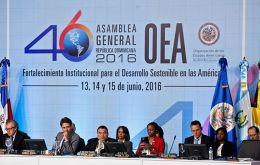
The Organization of American States, OAS, approved on Wednesday a declaration calling on Argentina and Great Britain to resume negotiations on the Falklands/Malvinas question as soon as possible.
-
Thursday, June 16th 2016 - 07:25 UTC
Macri attends economic forum in Colombia; reaffirms Argentina's commitment to the Pacific Alliance
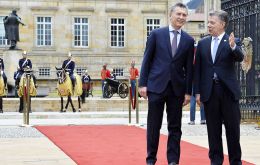
Argentine president Mauricio Macri said Mercosur needs “a greater integration dynamics” and defended the idea that the Atlantic regional block country members work to reach agreements with countries of the Pacific Alliance.
-
Thursday, June 16th 2016 - 07:11 UTC
Supreme Court lets three powerful Temer allies off the hook
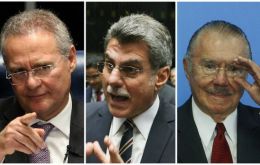
Brazil's Supreme Court has rejected a request by the nation’s Attorney General to arrest three senior members of acting President Michel Temer’s party in connection with the massive corruption investigation focused on Petrobras.
-
Thursday, June 16th 2016 - 07:03 UTC
Hillary ahead of Trump in polls, but both have strong unfavorable impressions
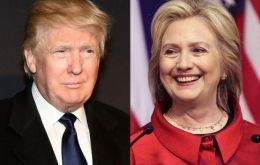
The 2016 United States presidential election has been divisive, but Americans agree on something: they really don't like Donald Trump and Hillary Clinton, according to one of the latest public opinion polls.
-
Thursday, June 16th 2016 - 06:55 UTC
Germany warns Brexit could lead to the European block's disintegration
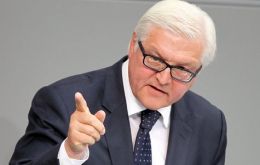
If the United Kingdom votes to leave the EU next week, the move could ultimately lead to the bloc's disintegration, Germany's foreign minister has warned. Frank-Walter Steinmeier was speaking near Berlin after talks with his French counterpart, Jean-Marc Ayrault.
-
Wednesday, June 15th 2016 - 12:40 UTC
Brexit: What if?

By Gwynne Dyer - After months in which opinion polls showed a six to ten percentage points lead for the 'Remain' side in the referendum campaign on continued British membership of the European Union (EU), the numbers have suddenly shifted in favor of 'Leave'.
-
Wednesday, June 15th 2016 - 11:46 UTC
Rio Games receive the blessing from Olympic Committee president
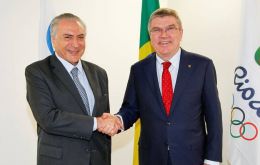
International Olympic Committee president Thomas Bach said on Tuesday he was “happy” with interim Brazilian president Michel Temer's commitment to the Rio Games, following his first meeting with the host country's new leader.
-
Wednesday, June 15th 2016 - 07:54 UTC
Brexit debate escalates: Remains warn of a fiscal “black hole”; Vote Leave slams “hysterical prophecies”

UK Chancellor of the Exchequer George Osborne says he will have to slash public spending and increase taxes in an emergency Budget to tackle a £30bn “black hole” if the UK votes to leave the European Union. The chancellor will say this could include raising income and inheritance taxes and cutting the NHS budget.
-
Wednesday, June 15th 2016 - 07:15 UTC
Kerry announces at OAS assembly high-level talks to ease tensions with Venezuela
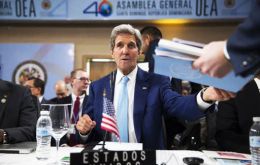
United States Secretary of State John Kerry announced high-level talks to ease tensions with Venezuela's populist government on Tuesday, just hours after he backed calls for a referendum that could force President Nicolas Maduro from office. Kerry said the talks would start immediately in Caracas and be led by Thomas Shannon, a veteran of U.S. diplomacy in the region. Attempts last year at dialogue between the ideological foes were stalled by Venezuela's deepening crisis.
-
Wednesday, June 15th 2016 - 05:26 UTC
An Argentine ex-Kirchnerite official caught red-handed trying to hide bags of cash in a monastery
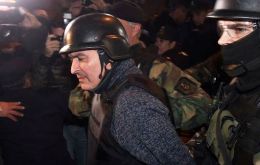
An Argentine former secretary of Public Works with the Cristina Fernandez administration, Jose Lopez, and currently a member of the Mercosur parliament, was arrested on Tuesday in the Buenos Aires province locality of General Rodríguez while he was trying to hide bags full of money and an automatic gun in the garden of a convent.
